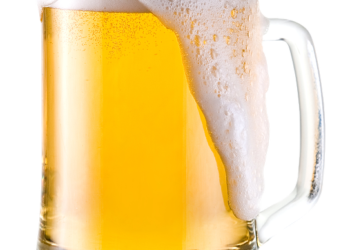The Art of Fermentation: Unlocking the Potential of Beer Fermenters
Introduction
Fermentation is a crucial step in the beer-making process that transforms sugars into alcohol and carbon dioxide. The process is carried out by yeast, which consumes the sugars and produces alcohol as a byproduct. Fermentation is a delicate art that requires precision, patience, and expertise. In this article, we will explore the art of fermentation and how it unlocks the potential of beer fermenters.
Understanding Fermentation
Fermentation is a natural process that has been used for centuries to produce beer, wine, and other alcoholic beverages. It involves the conversion of sugars into alcohol and carbon dioxide by yeast. Yeast is a single-celled organism that feeds on sugars and produces alcohol and carbon dioxide as byproducts. The type of yeast used in the fermentation process can greatly affect the flavor, aroma, and alcohol content of the final product.
The Role of Beer Fermenters
Beer fermenters are vessels used to ferment beer during the brewing process. They come in various shapes and sizes, ranging from small homebrewing fermenters to large commercial fermenters used by breweries. The primary function of a beer fermenter is to provide an environment for yeast to thrive and carry out the fermentation process. Fermenters are typically made of stainless steel or glass to prevent contamination and allow for easy cleaning.
Types of Beer Fermenters
There are several types of beer fermenters available, each with its own advantages and disadvantages. The most common types of beer fermenters include:
- Open Fermenters: These are traditional fermenters that are open to the air. They allow for natural carbonation and can impart unique flavors to the beer.
- Closed Fermenters: These fermenters are sealed to prevent contamination and oxidation. They are commonly used in commercial breweries to ensure consistency and quality.
- Conical Fermenters: These fermenters have a conical shape that allows for easy removal of yeast and sediment. They are popular among homebrewers and small breweries.
Optimizing the Fermentation Process
To unlock the full potential of beer fermenters, it is important to optimize the fermentation process. This involves controlling factors such as temperature, yeast strain, and oxygen levels to achieve the desired flavor, aroma, and alcohol content. Here are some tips for optimizing the fermentation process:
- Temperature Control: Yeast is sensitive to temperature fluctuations, so it is important to maintain a consistent temperature throughout the fermentation process. This can be achieved by using a temperature-controlled fermenter or placing the fermenter in a temperature-controlled environment.
- Yeast Selection: The type of yeast used in the fermentation process can greatly impact the final product. Different yeast strains produce different flavors and aromas, so it is important to choose a yeast strain that complements the style of beer being brewed.
- Oxygen Levels: Yeast requires oxygen to thrive, but too much oxygen can lead to off-flavors and aromas in the beer. It is important to aerate the wort before pitching the yeast and to avoid introducing oxygen during the fermentation process.
Common Questions About Beer Fermenters
Here are some common questions about beer fermenters:
1. How long does fermentation take?
The length of the fermentation process can vary depending on factors such as yeast strain, temperature, and alcohol content. In general, fermentation can take anywhere from a few days to a few weeks.
2. How do I know when fermentation is complete?
Fermentation is typically complete when the airlock stops bubbling and the specific gravity of the beer remains stable for several days. It is important to take regular gravity readings to monitor the progress of fermentation.
3. Can I reuse yeast from a previous batch?
Yes, yeast can be reused from a previous batch by harvesting and washing the yeast cells. This can save money and time, but it is important to ensure that the yeast is healthy and free from contamination.
Conclusion
Beer fermentation is a complex and fascinating process that unlocks the potential of beer fermenters. By understanding the art of fermentation and optimizing the fermentation process, brewers can create unique and flavorful beers that delight the senses. Whether you are a homebrewer or a commercial brewer, mastering the art of fermentation is essential for producing high-quality beer.






